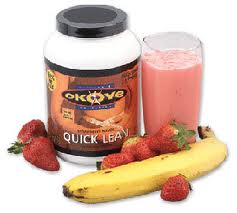
Protein powders can provide an excellent source of protein in our diets. If you are a conscious eater attempting to balance healthy carbs, proteins and fats at each meal, you are probably aware of the fact that finding lean sources of protein can sometimes be challenging. This is especially true if you are a vegan, a vegetarian or a pesco-vegetarian (consume fish, eggs and dairy).
Protein is essential for immunity, maintaining healthy body composition and balancing blood sugar. It is also invloved in the healing and growth of tissue and muscle, as well as the production of hormones, chemical messengers and digestive enzymes in the body.
How Much Protein Should You Eat?
Without getting too technical and avoiding the need to weigh or measure your foods, use these simple guidelines.
I often see vegetarians or vegans displaying symptoms of insufficient protein because they have not made a conscious effort to properly combine proteins or simply have not consumed enough protein to meet their daily requirements. Signs of insufficient protein include poor wound healing, dry skin, hair loss, gas and bloating, poor digestion, frequent colds and flus, prolonged soreness after exercise, mood swings, insomnia and depression.
Without protein, your body cannot properly make collagen to heal the skin; serotonin, dopamine and melatonin to boost mood and improve sleep, growth hormone for repair of body tissues and to slow down aging, digestive enzymes to prevent bloating and indigestion and antibodies to prevent infection.
Protein Powder Options
Since you require protein with every meal and snack, finding readily available sources can be challenging. Protein powders are a useful option. You can choose whey, soy, bean or rice protein powder options. The benefits of these alternatives are outlined below.
Protein is essential for immunity, maintaining healthy body composition and balancing blood sugar. It is also invloved in the healing and growth of tissue and muscle, as well as the production of hormones, chemical messengers and digestive enzymes in the body.
How Much Protein Should You Eat?
Without getting too technical and avoiding the need to weigh or measure your foods, use these simple guidelines.
- Include a serving size of protein roughly the size and width of your palm with each meal three times a day.
- Include a serving the size of half of your palm size and width with each snack twice a day.
- If you are training at high intensities and more than 4 days per week more protein may be required depending on your metabolic type.
I often see vegetarians or vegans displaying symptoms of insufficient protein because they have not made a conscious effort to properly combine proteins or simply have not consumed enough protein to meet their daily requirements. Signs of insufficient protein include poor wound healing, dry skin, hair loss, gas and bloating, poor digestion, frequent colds and flus, prolonged soreness after exercise, mood swings, insomnia and depression.
Without protein, your body cannot properly make collagen to heal the skin; serotonin, dopamine and melatonin to boost mood and improve sleep, growth hormone for repair of body tissues and to slow down aging, digestive enzymes to prevent bloating and indigestion and antibodies to prevent infection.
Protein Powder Options
Since you require protein with every meal and snack, finding readily available sources can be challenging. Protein powders are a useful option. You can choose whey, soy, bean or rice protein powder options. The benefits of these alternatives are outlined below.
- Whey Protein: Whey is superb for weight loss. It has been proven to cause loss of fat and to maintain muscle. Whey also maintains healthy immunity and increases glutathione levels (a potent antioxidant). Out of all of the protein powders, whey is my favourite for both its taste and beneficial effects on the body. When choosing whey read your labels carefully and purchase an isolate form.
- Soy Protein: One of the extra benefits of soy protein is hormone balance as it is mildly estrogenic and can assist with PMS, menopause, prostate health and healthy bones. But, too much of a good thing can also be bad for you. If the soy in your diet comes from sources such as tofu, tempeh or soymilk, it may be best to choose an alternate protein powder other than soy.
- Rice or Bean Protein: Rice or bean protein powders are a good choice for individuals with intolerance or sensitive to dairy (whey protein is made from dairy) or to soy. Vega sport and Mediclear are good options.
 RSS Feed
RSS Feed
